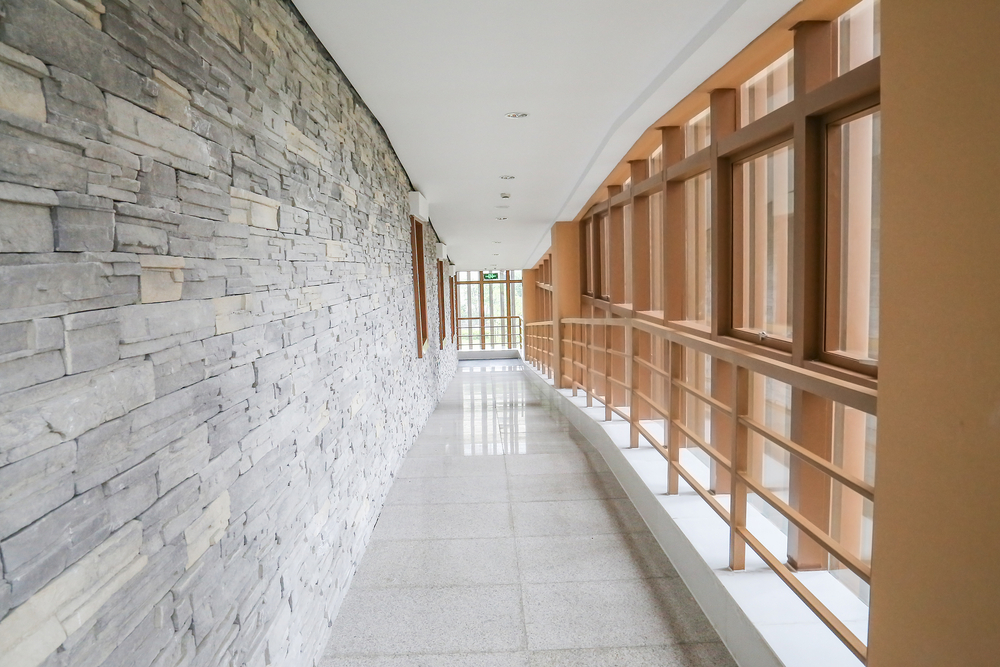
It is widely known that admission to hospital at times of mental distress can be an un-therapeutic intervention.
Alternatives to acute inpatient care have been in existence for as long as there have been modern mental health services and range from therapeutic communities (Lees et al, 1999), Soteria project (Calton et al, 2008), crisis houses and sanctuaries.
In the UK they have struggled to demonstrate their effectiveness and to be funded, despite the minimal evidence of effectiveness and huge costs associated with inpatient mental health services.
The aim of this new cross-sectional study was to examine therapeutic alliances between crisis houses and acute wards.
Methods
Service users were recruited from acute wards or crisis houses in inner city London. Five measures were distributed including:
- Scale to assess therapeutic relationships (STAR-P)
- Client satisfaction questionnaire (CSQ)
- Interpersonal relationship inventory (IPR)
- Recovery assessment scale (RAS)
- Negative events schedule for staff and patients (NES-S, NES-P)
A qualitative study was embedded within this.

Crisis houses offer short term accommodation for people experiencing a mental health crisis.
Results
A total of 355 service users participated, 108 from crisis houses (n=4) and 247 services users were recruited acute wards (n=16).
Significant differences between crisis houses and acute wards existed, in favour of crisis houses:
- Therapeutic relationships were 8.74 points higher (STAR-P, 95% CI: -12.3 to -5.19)
- Satisfaction 6.5 points higher (95% CI: -7.59 to -2.94)
- Stages of recovery appeared higher in those in inpatient settings, the authors suggested that this was related to the influence of diagnosis
- Peer support 12.08 points higher (95% CI: -18.53 to -5.63)
- Staff (and other service user) negative events appeared to have a key feature in therapeutic relationships. This includes theft, discrimination, ignoring, and being treated with force
Qualitative findings emphasised the importance of therapeutic relationships of which human qualities, staff dedication to the role, interest and engagement appeared key. Other key factors focused on the organisation of services particularly around compulsory admissions, how services promote freedom and choice, the atmosphere and environment and finally access to and availability of staff.

Unsurprisingly, this study reinforces the importance of human qualities such as kindness, warmth, interest and engagement.
Conclusions
The authors concluded:
We found that service users experience better therapeutic relationships and higher satisfaction in crisis houses compared to acute wards, although we cannot exclude the possibility that differences in service user characteristics contribute to this.
One of the most important determinants of therapeutic alliance was the basic personal qualities and interpersonal skills of staff: detailed accounts consistently underscored the importance of kindness, warmth, interest and engagement, and the damage caused by disinterest and disrespect.
Discussion
Notwithstanding the differences between crisis houses and acute wards particularly in terms of population; acute wards had a much higher prevalence of psychosis and detention under the Mental Health Act. Crisis houses appear to be acting in a much more therapeutic manner. Maybe some of this is about staff and their perspectives. It could be argued that the primary focus of mental health nurses, the main staff group of acute wards, is not developing therapeutic relationships with their service users. Unfortunately this is a not a new finding.
Researchers and clinicians need to invest their energies into improving the therapeutic alliances on acute wards and examining whether this leads to positive outcomes for the mental health of service users. We have known for too long that these services are essentially viewed as un-therapeutic.

Researchers and clinicians need to invest their energies into improving the therapeutic alliances on acute wards.
Links
Sweeney et al (2014) The Relationship between Therapeutic Alliance and Service User Satisfaction in Mental Health Inpatient Wards and Crisis House Alternatives: A Cross-Sectional Study. DOI: 10.1371/journal.pone.0100153
Lees J, Manning N, Rawlings B. (1999) Therapeutic community effectiveness. A systematic international review of therapeutic community treatment for people with personality disorders and mentally disordered offenders (PDF). University of York, CRD report 17.
Calton T, Ferriter M, Huband N, Spandler H. A systematic review of the Soteria paradigm for the treatment of people diagnosed with schizophrenia. Schizophr Bull. 2008 Jan;34(1):181-92. Epub 2007 Jun 14.

Speaking from experience of being admitted to an acute ward in times of mental distress I can say that hospital wasn’t the idea place for treatment, or connection of any kind. When I was there, the best support I had was from the many friends/family who visited and some of the patients. I don’t believe we have “crisis houses” in Australia that deal with mental health issues. I must look into that.
@Mental_Elf agree but simplistic as there seems to be no mention of illness severity. This can significantly influence therapeutic alliance
Are staff in crisis houses staff more caring than those on acute mental health wards http://t.co/r3rw0bQpJq @soniajohnson suggests so
@mental_elf study raises an important point. Unconditional positive regard needs to be promulgated in all settings
@mark_bolstridge & @shrinking81 please post your ideas here: http://t.co/r3rw0bQpJq
.@JohnBaker_UoM on relationship btwn therapeutic alliance & service user satisfaction in acute wards & crisis houses http://t.co/CKuIJvc2QD
@Mental_Elf As opposed to what exactly.
Oh! Government policy treat them like crap and watch them die
@Mental_Elf thanks v much for covering! Don’t think though that we’ve shown they get better – but less distressed, more satisfied.
@shrinking81 @Mental_Elf @DrGTalkingCures @JohnBaker_UoM RCT evidence would be great as different service users a big limitation….
@shrinking81 @Mental_Elf @DrGTalkingCures @JohnBaker_UoM also culture of crisis houses doesn’t favour RCTs on the whole.
@shrinking81 @Mental_Elf @DrGTalkingCures @JohnBaker_UoM you are right however that practicalities of research in crisis hard ….
A previous paper on methodological difficulties in crisis house RCTs @shrinking81 @Mental_Elf http://t.co/HUJgnjZ4Fh
An attempt a few years ago to do a patient preference RCT of crisis houses @shrinking81 @Mental_Elf http://t.co/3KJWzqInwd
@soniajohnson @Mental_Elf Thanks for the references – much appreciated.
@Mental_Elf what if therapist does not ‘believe’ in what patient says is prob? Happens all the time to ppl with DID & trauma/dissociation.
RT @mcpherson_ian: “Are staff in crisis houses seen as more caring than those on acute mental health wards”: Impact of people or system? ht…
No sh*t lol
Great @Mental_Elf coverage of our paper on therapeutic alliance in crisis houses @helengilburt @AngelaCSweeney http://t.co/zUTcVTUDfb
Be nice to patients and they will get better? http://t.co/r0cGG0tviT
Be nice to patients and they will get better? Therapeutic alliance and service user satisfaction http://t.co/RcVw46p67q via @sharethis
Doh!
New cross sectional study reinforces the importance of kindness, warmth, interest & engagement in mental health care http://t.co/CKuIJvc2QD
@Mental_Elf Don’t think you need a cross-sectional study to prove this…
@Mental_Elf @RecoveryDevon quelle surprise. ..
Amazing that we still need to remember this…. one would hope that as therapeutic, empathic , emotionally and intellectually intelligent practitioners we would know that being nice, good customer service infact… goes such a long way. How do WE feel when a shop assistant smiled and seemed to genuinely want to help ? How do WE feel when the power tripping receptionist gives steely ete contact and sighs heavilty at any request….. not rocket science but i look forward to reading this….
I think that people admitted to Acute admissions wards are often admitted non voluntarily and often under the MHA and have severe mental illness, and unfortunately a lot of these wards seem to be focussed primarily on medical intervention first, this may often leaves MHN administering medication to people who may not want it, this then can impact on having a therapeutic/helping relationship, while in a crisis house although it may be as challenging, I would think most people would be there voluntarily.Therfore establishing a therapeutic relationship maybe slightly less challenging.
Mental Elf: Be nice to patients and they will get better? Therapeutic alliance and service user satisfaction http://t.co/zHqnG2cfWo
Be nice to patients and they will get better? Therapeutic alliance and service user satisfaction via @mental_elf http://t.co/SGgJmqoAsu
Some great comments about today’s @Mental_Elf http://t.co/jWENNKfPeh sad that therapeutic alliance still not good in acute mental health
RT @Mental_Elf: Don’t miss: Be nice to patients and they will get better? Therapeutic alliance and service user satisfaction http://t.co/CK…
@strategiesuws Therapeutic alliance and service user satisfaction http://t.co/xmoBSnPaff via @Mental_Elf
@UWSHeatherN @strategiesuws @Mental_Elf
RT @Mental_Elf: Researchers & clinicians need to invest their energies into improving the therapeutic alliances on acute wards http://t.co/…
RT @MarkOneinFour: Interesting from @Mental_Elf on crisis houses versus acute wards in #mentalhealth http://t.co/obv8JRGIRC
The importance of kindness in acute care – the admirable elf covers @uclpsychiatry paper today http://t.co/AZhdlh85xO
Kindness, warmth, interest & engagement key 2 building therapeutic alliance in acute mental health http://t.co/BG1JEt09Zb @Mental_Elf #MH
Be nice to patients and they will get better? – The Mental Elf http://t.co/V3SdRuWw0E
A solution to #CB? http://t.co/0FQzmxQS49
Be nice to patients and they will get better? Therapeutic alliance and service user satisfaction #compassion #FIT http://t.co/5vahRnDqtr
Be nice to patients and they will get better? Therapeutic alliance and service user satisfaction http://t.co/DDhsmdH38A We nd crisis homes-
RT @aghoury79: Be nice to patients and they will get better? Therapeutic alliance and service user satisfaction: John Baker r… http://t.c…
RT @find_therapy: Be nice to patients and they will get better? Therapeutic alliance and service user satisfaction http://t.co/bJwxNdYsUQ v…
Most popular blog this week? It’s @JohnBaker_UoM Be nice to patients & they will get better? http://t.co/CKuIJvc2QD #TherapeuticAlliance